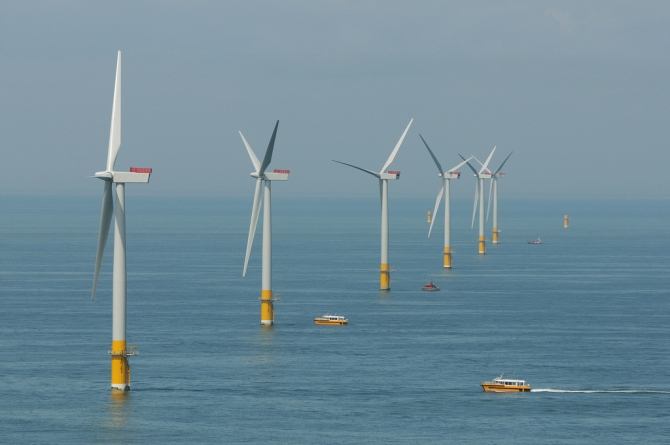As the UK becomes ever more determined to rely on green energy as much as possible, there have been numerous warnings from electricity operator National Grid regarding rolling blackouts around the country as a result of a reduction in a reliably constant supply. In order to combat this, it was announced this week by chief executive Steve Holliday that the firm will begin to routinely pay businesses to “switch off” at times when supply drops, with factories using large amounts of energy the primary targets for the new initiative.

The main issue lies with wind farms which, although able to produce completely green energy, rely heavily on strong wind levels to keep the lights on. Therefore, the power produced is relatively intermittent, meaning that at present oil or gas fired power stations are used to make up the shortfall – a means of generating energy which is reliable yet will damage the Government’s chances of meeting environmental targets if over-used.
The initiative will see participating factories reduce their power usage on days when there is low wind and in return receive payments from National Grid; something which Mr Holliday claims will provide better value for money for the taxpayer than building additional power stations would.
He says; “We should be optimistic that demand response could avert the need to build significant amounts of power stations in ten years’ time or so.
“We have to get used to a world in which when power is cheap we use it, and when power is expensive we find a way of not using it.
“This is the beginning of a world in which demand will be managed more actively by all of us as consumers, when we have smarter homes, smarter meters.”
The announcement follows on from the launch of a similar pilot short-term scheme by National Grid earlier this week, in which the firm began to recruit businesses from a diverse range of sectors to turn off their power supplies between 4pm and 8pm on winter weekdays. It will run for the next four years in order to help prevent rolling blackouts throughout the country, and participating firms will receive tens of thousands of pounds from National Grid – payments which will continue past the initial period should they stop drawing power from the grid.
Although other initiatives, such as connecting supply wires to the continent and storing greater amounts of energy, will run concurrently with each scheme, the question is whether the supply chain will be affected by numerous factories lowering production for perhaps days at a time. As manufacturing has played such a huge part in the economic recovery of the UK, a reduction in energy supply could not only affect individual firms but also regional economies, particularly the West Midlands which is home to a large percentage of UK based manufacturers.
With National Grid’s hands largely tied due to Governmental green energy legislation, it seems that this may be the only option to keep Britain’s lights on. However, only time will tell whether British firms, and the British economy, will suffer as a result.